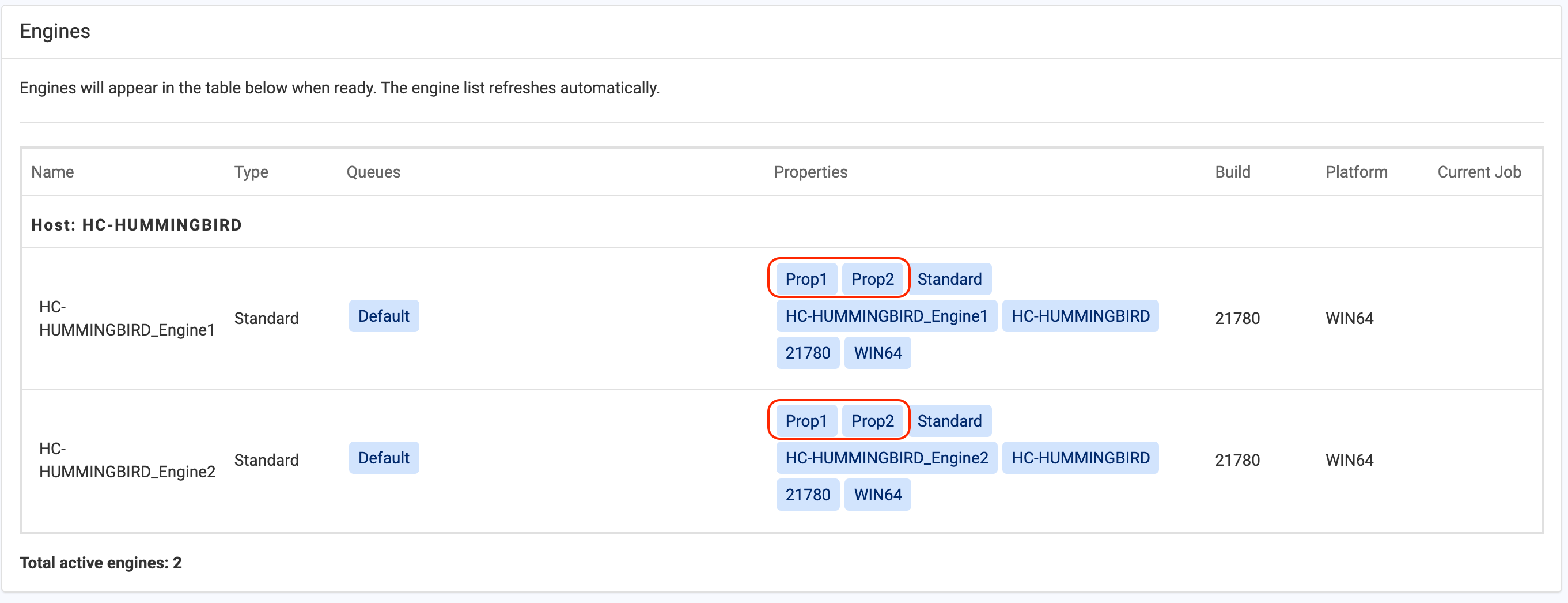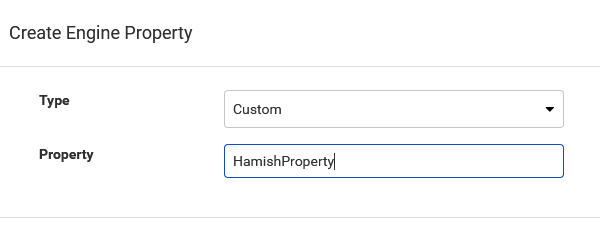Hi @hkingsbury ,
The ability to add custom properties was implemented specifically for containerized installations (Docker/K8S) because in these deployment types FME Engines are regularly created and destroyed and because of that, the Engine name is continuously changing, so in order for users to be able to make use of Queue Control, they needed to be able to provide Engines with a constant value.
That being said, it is possible to add custom properties to a standard deployment by making a change to the processMonitorConfigEngine.txt:
1. Run a text editor as administrator and open processMonitorConfigEngine.txt located in <FMEInstallDir>\Server\
2. Scroll down to the bottom of the file to the section # ENGINE process configuration template and find the line starting with TEMPLATE_START_ENGINE (~line 270)
3. At the end of the line add the parameter '-ENGINE_PROP <value>' where <value> is the custom property name. If you’d like to add multiple properties, repeat this with a space to separate them. For example:
TEMPLATE_START_ENGINE=“C:/Program Files/FMEServer/Server/fme/FMEEngine.exe” REGISTER_FME_ENGINE localhost 7070 DEFAULT “C:/Program Files/FMEServer/Server/fmeEngineConfig.txt” -ENGINE_HOST_NAME HC-HUMMINGBIRD -ENGINE_PROP Prop1 -ENGINE_PROP Prop2
4. Save the file and restart the FME Server Engine Service, in the Web UI go to the Engines page and you’ll now see your new properties assigned.
 If you do this, you should keep in mind:
If you do this, you should keep in mind:
1. This property will be applied to all FME Engines running on that host, you cannot assign custom properties to a single Engine unless you distribute it so it has its own configuration file.
2. This approach is not documented because it is not the intended use case, as such it is possible it will not work in future versions of FME.
I’d love to learn a little bit more about what you’d like to use custom properties for, do you have a use case in mind?
I’d highly recommend you post an idea, sharing your use case, this way we can monitor if this is something a lot of users would find helpful and consider making improvements to the product to be able to fully support custom properties on standard deployments in future.





 If you do this, you should keep in mind:
If you do this, you should keep in mind: